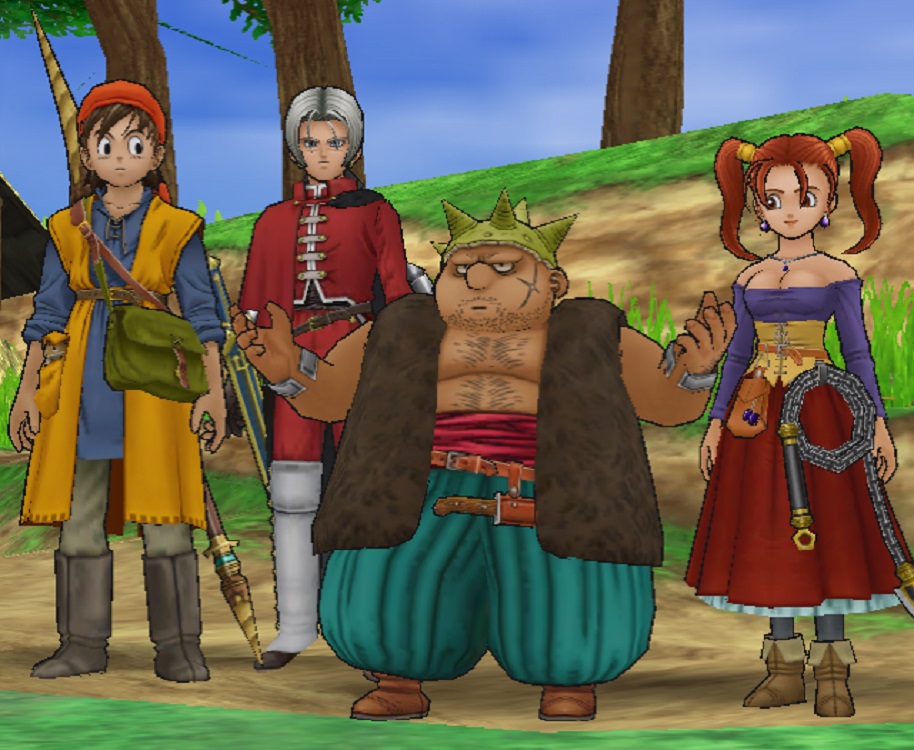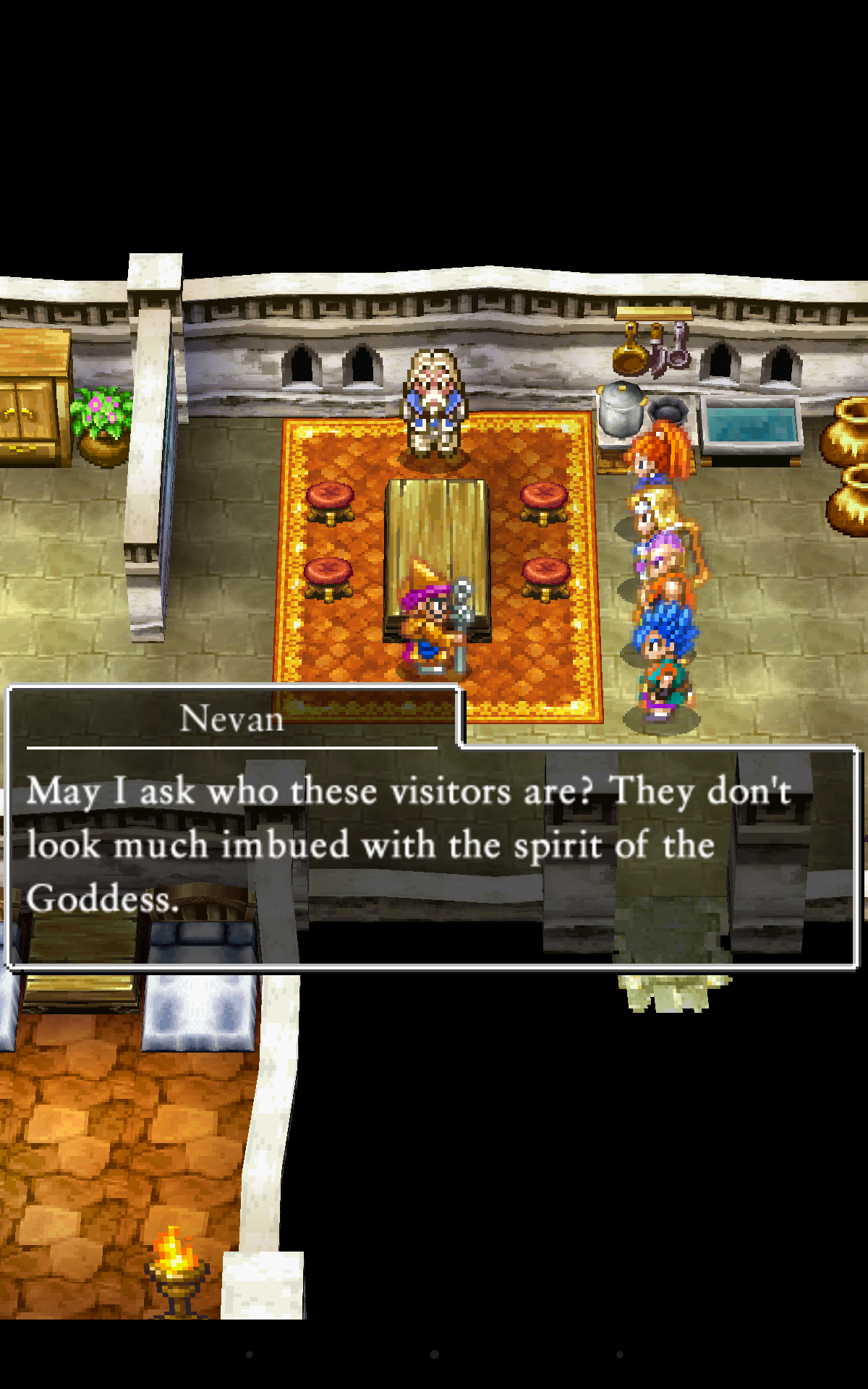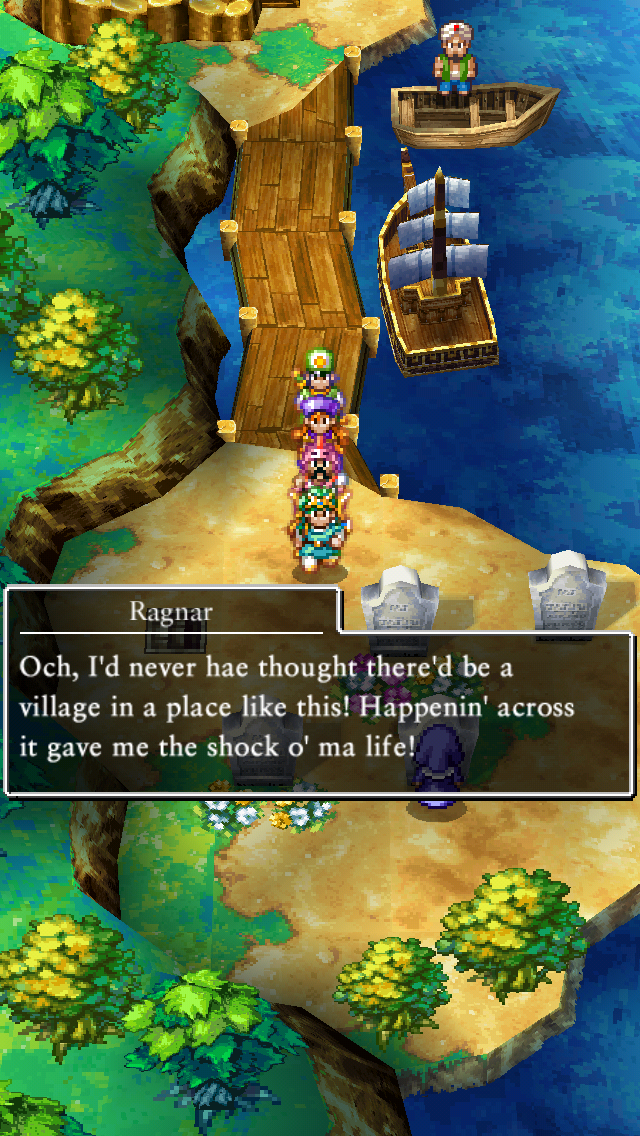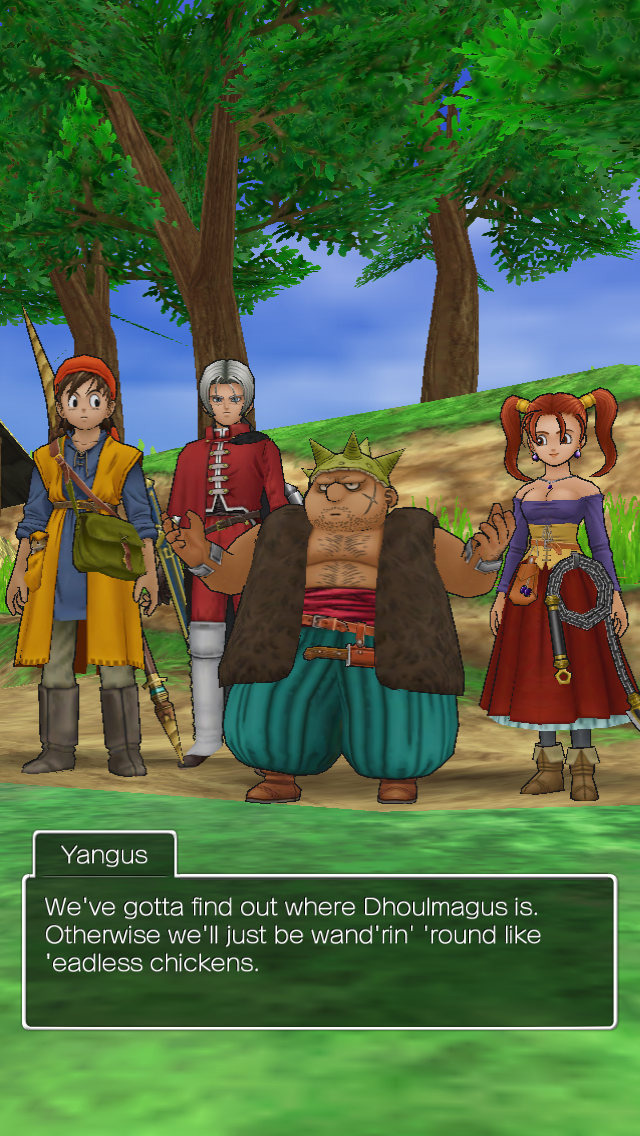Why Dragon Quest Is the Best Game Series on Android and iOS
No microtransactions; no enforced tedium; no required Internet connection: Dragon Quest may be as good as Android/iOS games get.
Open up the app store on your phone, and navigate over to the games section. What do you see? If your screen is anything like mine, it's probably row after row of free-to-play titles, which bog you down with endless busywork and reward you with the chance to do the endless busywork just a little bit faster. And, of course, if you don't feel like waiting four hours for your building to finish construction, you can always pony up for some microtransactions — just don't be surprised if a few time-savers cost you more than a brand-new PS4 game.

No, it's not a happy time for Android and iOS games. That's what I learned last month, anyway, after I moved to a new apartment and had to rely on my phone for entertainment until I could set up my PC and TV. I spent about two weeks without big-screen gaming and, coincidentally, without Internet. As such, you can imagine how difficult it was to play most mobile games, which require constant connections and inordinate amounts of time to regenerate in-game currencies required to undertake missions.
I realized that if I wanted something fun, inexpensive, offline and with an actual start-to-finish story, I'd have to go back: back to the era before microtransactions, before Internet-connected devices, before the Web itself. That's how I discovered the Dragon Quest series — and the fact that it's just about the ideal Android/iOS gaming experience.
Thirty-plus years of Dragon Quest
Dragon Quest is a series of Japanese role-playing games that debuted in 1986 on the Famicon/NES. The first entry contains pretty archetypal stuff: You play as a warrior who sets out on a quest to defeat the evil Dragonlord, exploring a varied fantasy world while gaining experience and equipment along the way. It may not sound like much today, but remember: This was a year before Final Fantasy debuted. The game was a revelation at the time, particularly for its striking artwork, courtesy of Dragon Ball Z artist Akira Toriyama.
MORE: Best Android Games
Since then, the franchise has become one of Japan's most beloved RPG sagas, and after a long and complicated history, earned some traction in the West as well. Later games added all sorts of enhancements: Party members, customizable abilities, branching stories and so forth, along with much better graphics and music. But the core concepts have remained remarkably similar: Take control of a group of plucky youngsters, fight some adorable enemies and follow an upbeat story that's more about the journey than the resolution.

In other words: Dragon Quest lends itself perfectly to mobile adaptations. Turn-based battles, big (but clearly demarcated) worlds to explore, equipment to juggle, side quests to finish — they're just the right combination of busywork and narrative. After all, games that demand your full attention at all times don't work that well when you're starting at a five-inch screen on the subway; games that offer nothing but simplistic, repetitive gameplay will become grating long before you get to the ending.
Gaming, untethered
Once I started playing the Dragon Quest series, I was amazed just how many of our favorite things about gaming we've surrendered to the free-to-play machine. Let's use Dragon Quest III as an example, since I finished playing that one the most recently.

In order to play Dragon Quest III, you go to your app store of choice and spend $10 up front. That may sound like a frankly inconceivable amount of money for gamers who are used to F2P titles, but remember: you pay for it only once. That's it. No matter how many hours you put into DQ3 (which is about 25 for the main story, with another 10 for the postgame content), you'll never pay another cent for it. (Readers under the age of 25 or so may not believe this, but this is pretty much how all video games used to work.)
Compare and contrast with Clash of Clans, one of the most popular F2P games in both the Android and iOS app stores right now. $10 will buy you 1,200 "gems," which act as premium currency in the game. These gems don't give you access to anything you can't get by playing the game for free, although in a practical sense, they're the only way to unlock some of the higher-level content. Without getting into too much detail, it's entirely possible to spend
MORE: 19 Best Android Games to Play On Your Chromebook
400 or 500 gems on a single building upgrade or powerful item, meaning your $10 will buy you, in effect, about 30 seconds of entertainment.
Then, there's the game itself. To play Dragon Quest III, you turn it on, play through as much of the game as you care to, then save your progress and turn it off again. There's no restriction on how many battles you can get into, or how far you can advance the plot. You don't have to wait for any resources to regenerate, or equipment to finish crafting. If you want something, you just buy it, with gold that you earned from defeating enemies. If you want to level up your characters, you just fight until you gain enough experience. You don't have to grind for extra resources, or wait for hours while your characters "train."
And speaking of characters, you can recruit as many as you want. You can choose their names and classes, and hold as many as you want in reserve. Later in the game, you can change their classes and names. None of this costs money, in-game or otherwise. You can store any excess equipment in a bottomless bag; you never have to "earn" more storage space. Every single one of these features would nickel-and-dime an F2P gamer, either in premium currency or in time wasted.

Even once I finished the game, I was surprised to learn there's a whole new area to explore, with extra dungeons, more powerful items and new bosses, one of whom can even (kind of) rewrite a big part of the story. This content isn't a limited-time event; it doesn't go away. It's just there if you want it.
And perhaps the most beautiful thing of all is that you won't see a single ad from the time you boot up the game to the time the end credits roll.
Critics could argue that Dragon Quest wasn't originally designed with a phone in mind. As a more fleshed-out experience, doesn’t it deserve our full attention, rather than treating it as just another casual distraction? To that I say, "maybe." I agree that there is some legitimate artistry in the series, and playing the entire thing while half-paying attention on the subway isn't the ideal way to consume it. But like any other JRPG, there is an awful lot of filler, and I see nothing wrong with killing some time that way.
The cost of a series
What's also cool about Dragon Quest is that you can play the lion's share of the series, right up to the PS2 era. (You can't play some of the more recent games, simply because the average smartphone can't support them — yet, anyway.) Dragon Quest VII is mysteriously missing, but I – VI and VIII are all a tap away.
They're not really that expensive, either. Acquiring all seven games costs a little more than $80, and that investment will take you an awful lot further than $80 worth of premium currency in your F2P time-sink of choice. You also get the obvious benefits of deeper gameplay, more satisfying narratives and fewer arbitrary gates between you and the fun parts.
The purpose of this piece isn't to denigrate all F2P games — some of them are good and some of them are bad, just like any other genre. But playing a series like Dragon Quest made me realize that we have given up a lot of standard gameplay features just to avoid paying an entry fee. In an F2P game, you can't play as much as you want. Every important reward is delayed for hours. And may the gods of gaming help you if you can't find a reliable Internet connection to ping the servers every minute or so.
While the Dragon Quest series isn't free, your time is also worth money — and your time is better spent playing a game than waiting for a timer to tick down in exchange for a few minutes of fun. That's why Dragon Quest is my favorite mobile series. What's yours?
Credit: Square Enix
Sign up to get the BEST of Tom's Guide direct to your inbox.
Get instant access to breaking news, the hottest reviews, great deals and helpful tips.
Marshall Honorof is a senior editor for Tom's Guide, overseeing the site's coverage of gaming hardware and software. He comes from a science writing background, having studied paleomammalogy, biological anthropology, and the history of science and technology. After hours, you can find him practicing taekwondo or doing deep dives on classic sci-fi.

